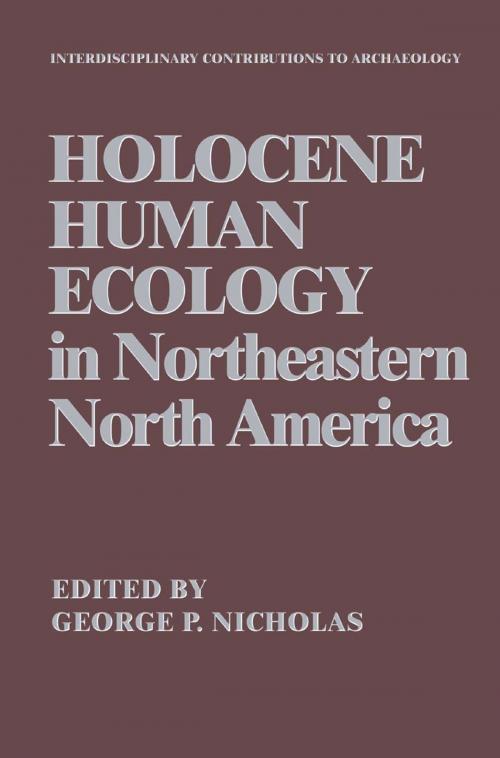Holocene Human Ecology in Northeastern North America
Nonfiction, Social & Cultural Studies, Social Science, Archaeology, History| Author: | ISBN: | 9781489923769 | |
| Publisher: | Springer US | Publication: | June 29, 2013 |
| Imprint: | Springer | Language: | English |
| Author: | |
| ISBN: | 9781489923769 |
| Publisher: | Springer US |
| Publication: | June 29, 2013 |
| Imprint: | Springer |
| Language: | English |
Students of human behavior have always been interested in the relationship between human populations and their environment. Decades of research not only have illuminated the backdrop against which culture is viewed, but have identi fied many of the conditions that influence or promote technological develop ment, social transformation, and economic reorganization. It has become in creaSingly evident, however, that if we are to explore more forcefully the linkages between culture and environment, a processual orientation is required. This is found in human ecology-the study of the relationship between people and the ecosystem of which they are a part. This book is a collection of papers about the recent and distant past by scientists and humanists involved in the study of human ecology in northeastern North America. The authors critically examine the systemic interface between people and their environment first by identifying the indicators of that rela tionship (e.g., historical documentation, archaeological site patterning, faunal remains), then by defining the processes by which change in one part of the ecosystem affects other parts (e.g., by conSidering how an ecotonal gradient affects biotic communities over time), and finally by explicating the behavioral implications thereof.
Students of human behavior have always been interested in the relationship between human populations and their environment. Decades of research not only have illuminated the backdrop against which culture is viewed, but have identi fied many of the conditions that influence or promote technological develop ment, social transformation, and economic reorganization. It has become in creaSingly evident, however, that if we are to explore more forcefully the linkages between culture and environment, a processual orientation is required. This is found in human ecology-the study of the relationship between people and the ecosystem of which they are a part. This book is a collection of papers about the recent and distant past by scientists and humanists involved in the study of human ecology in northeastern North America. The authors critically examine the systemic interface between people and their environment first by identifying the indicators of that rela tionship (e.g., historical documentation, archaeological site patterning, faunal remains), then by defining the processes by which change in one part of the ecosystem affects other parts (e.g., by conSidering how an ecotonal gradient affects biotic communities over time), and finally by explicating the behavioral implications thereof.















